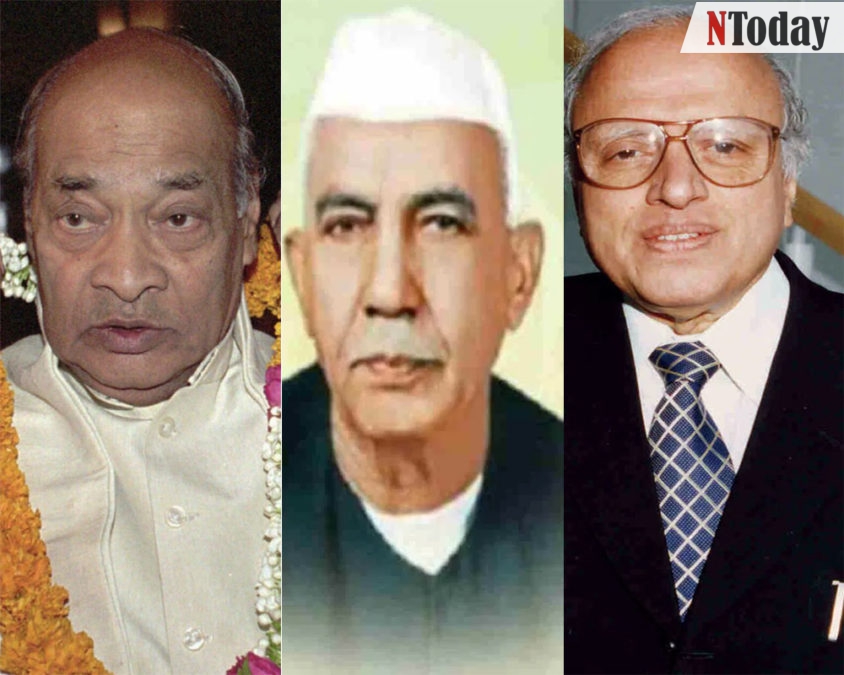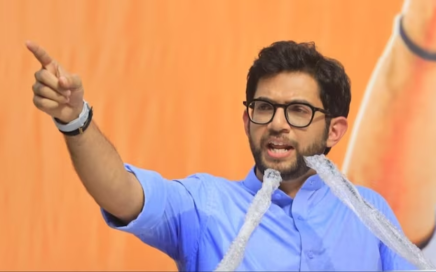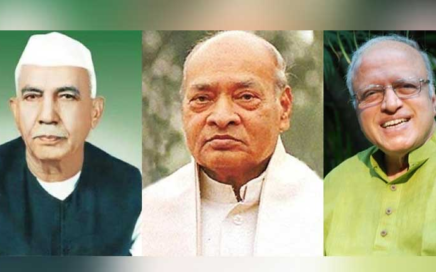
New Delhi: Prime Minister Narendra Modi on Friday announced that former Prime Ministers Narasimha Rao, Chaudhary Charan Singh and renowned agriculture scientist MS Swaminathan will get Bharat Ratna.
Former Prime Minister PV Narasimha Rao has been posthumously awarded the Bharat Ratna, India’s highest civilian honours. The Congress stalwart is credited with bringing economic reforms to India in 1991, which paved the way for the country’s economic revival.
Announcing the award, PM Modi acknowledged his contribution in making India economically advanced. “Delighted to share that our former Prime Minister, Shri PV Narasimha Rao Garu, will be honoured with the Bharat Ratna. As a distinguished scholar and statesman, Narasimha Rao Garu served India extensively in various capacities. He is equally remembered for the work he did as Chief Minister of Andhra Pradesh, Union Minister, and as a Member of Parliament and Legislative Assembly for many years. His visionary leadership was instrumental in making India economically advanced, laying a solid foundation for the country’s prosperity and growth,” PM Narendra Modi wrote on X.
“Narasimha Rao Garu’s tenure as Prime Minister was marked by significant measures that opened India to global markets, fostering a new era of economic development. Furthermore, his contributions to India’s foreign policy, language and education sectors underscore his multifaceted legacy as a leader who not only steered India through critical transformations but also enriched its cultural and intellectual heritage,” he added.
Pamulaparthi Venkata Narasimha Rao (28 June 1921 – 23 December 2004) was a lawyer, a towering Congress leader in undivided Andhra Pradesh, who became the 9th Prime Minister of India. He ruled the country between 1991 and 1996.
In 1991, when India was facing a foreign reserves crisis, Narasimha Rao’s government brought about the three big-ticket economic reforms — globalisation, liberalisation and privatisation. PV Narasimha Rao was the first person from south India to become the Prime Minister of India.
He was born in a Telugu Niyogi Brahmin family in the Laknepalli village of Narsampet mandal, Warangal. The district is currently in Telangana. He was a freedom fighter who took part in Hyderabad’s Vande Mataram movement in the late 1930s. He was a lawyer by profession.
After Independence, PV Narasimha Rao became a full-time politician. He was elected as an MLA for the first time in 1957. Till 1971, he assumed many ministerial positions in the state government. He became the chief minister in 1971.
He was known as an Indira Gandhi loyalist. He supported her in 1969 when the Congress vertically split into two parts.
Rao also served as a member of parliament from Andhra Pradesh and handled home, defence and foreign affairs portfolios as a central minister.
In 1991, he had almost retired. However, he came back to active politics after the assassination of Congress President and Prime Minister Rajiv Gandhi’s assassination.
The government had earlier announced the country’s highest civilian honour for L K Advani and Karpoori Thakur.
Late Chaudhary Charan Singh
“Bharat Ratna to Charan Singh dedicated to his incomparable contribution to the country,” the Prime Minister said.
The late Chaudhary Charan Singh, who served as the Prime Minister of India, has been posthumously honoured with the Bharat Ratna for his unwavering dedication to the welfare of farmers. Throughout his political career, including terms as the chief minister of Uttar Pradesh and the home minister of India, Singh championed the cause of farmers and played a significant role in nation-building. His resistance against the Emergency and his commitment to democracy have been highlighted as sources of inspiration for the entire nation. Prime Minister Modi expressed pride in the government’s good fortune to honor Singh’s legacy and his incomparable contributions to the country.
Dr. M.S. Swaminathan: A pioneer in agricultural revolution
The government has acknowledged Dr MS Swaminathan’s monumental role in transforming Indian agriculture and ensuring the country’s food security. Known as the father of the Green Revolution in India, Dr Swaminathan’s efforts in modernizing agriculture have been instrumental in achieving self-reliance in food production during critical times. His work as an innovator and mentor in encouraging research and learning among students has also been celebrated. Prime Minister Narendra Modi personally reflected on Dr Swaminathan’s visionary leadership and his close relationship with him, emphasizing the profound impact of his insights and contributions to the nation’s prosperity.
“Swaminathan made monumental contributions to the country in agriculture and farmers’ welfare,” Modi said. He played a pivotal role in helping India achieve self-reliance in agriculture and made outstanding efforts in modernising it, the Prime Minister said.














